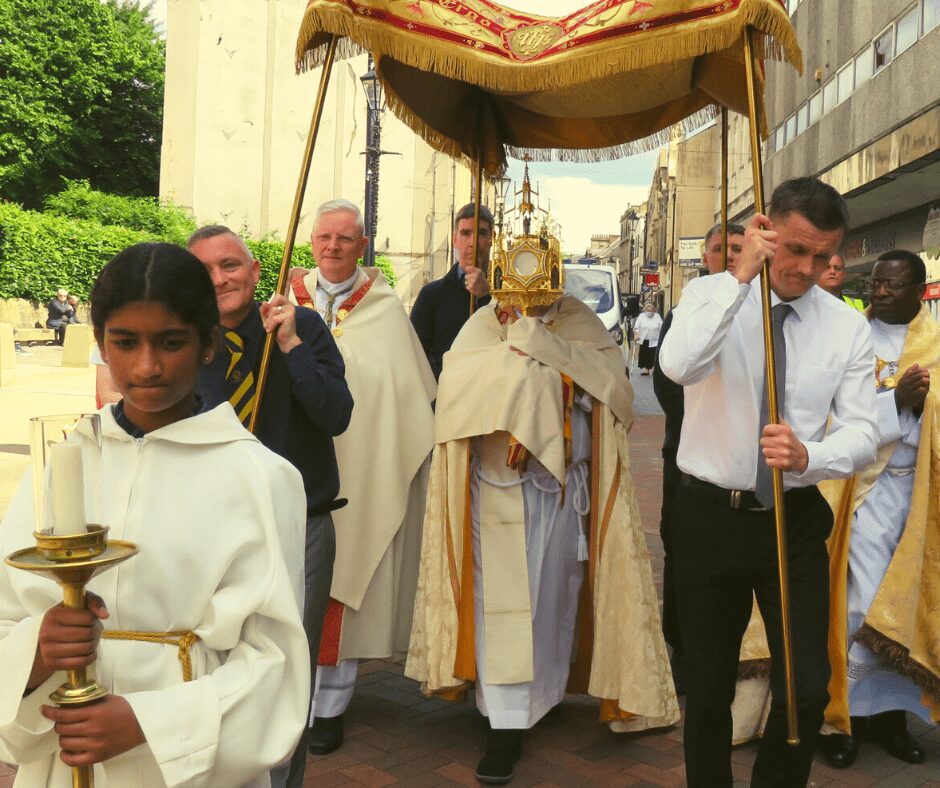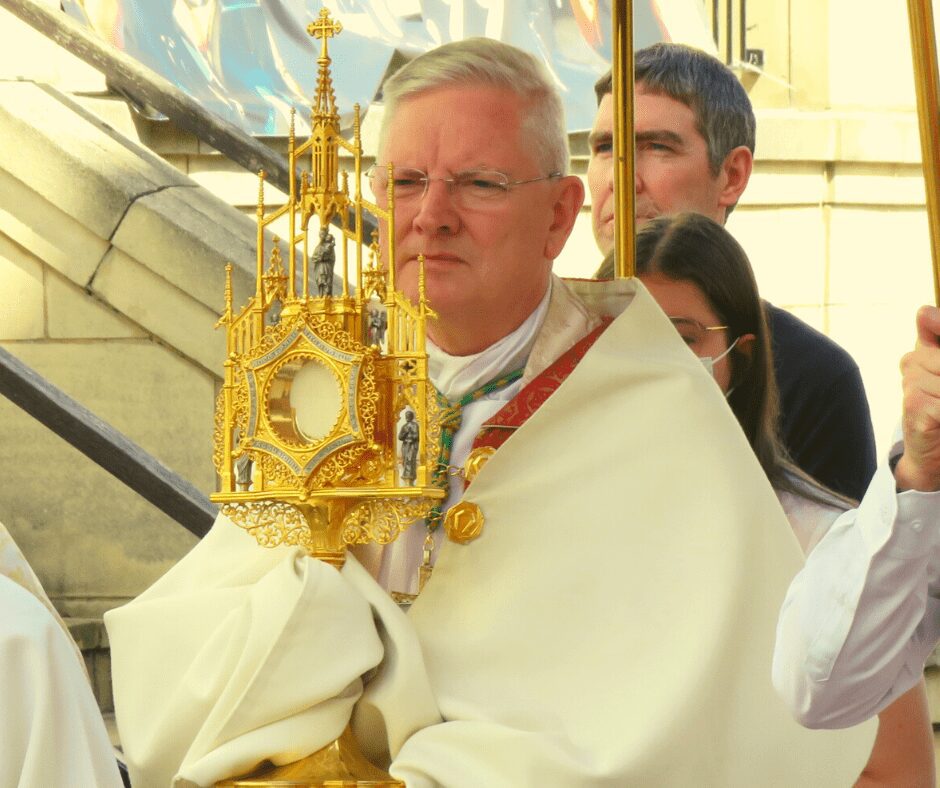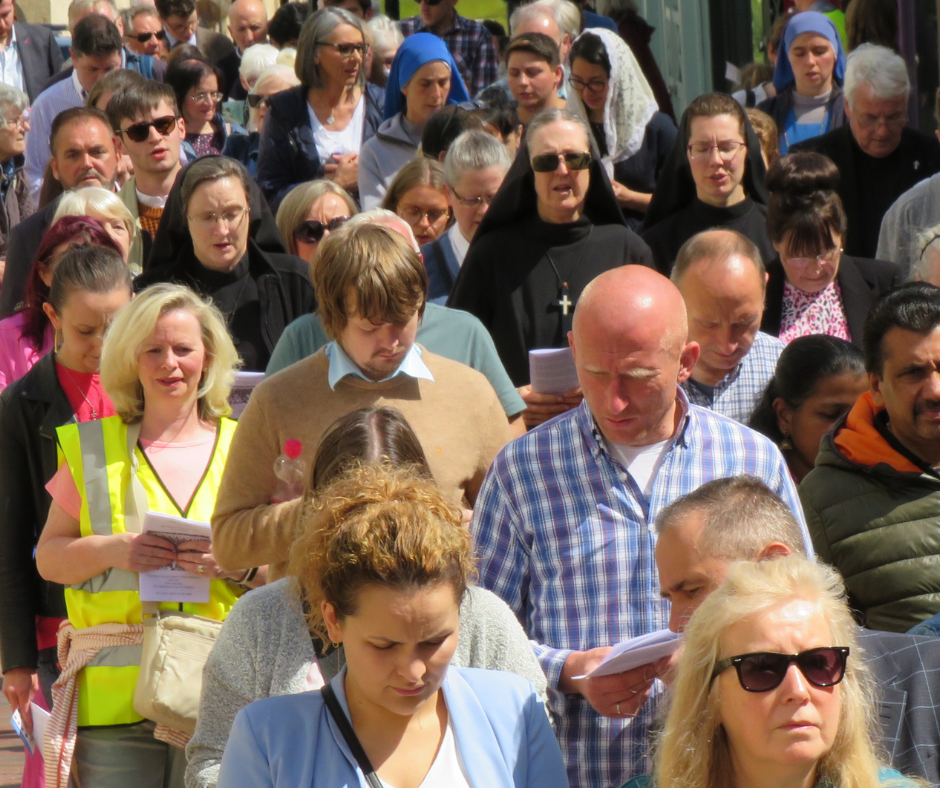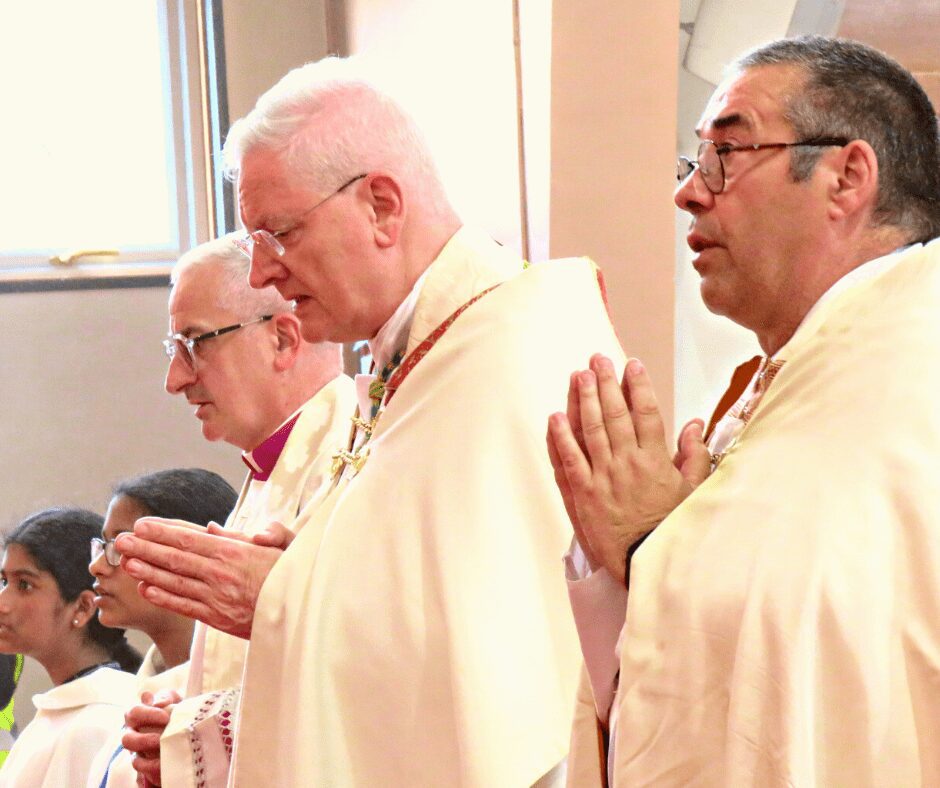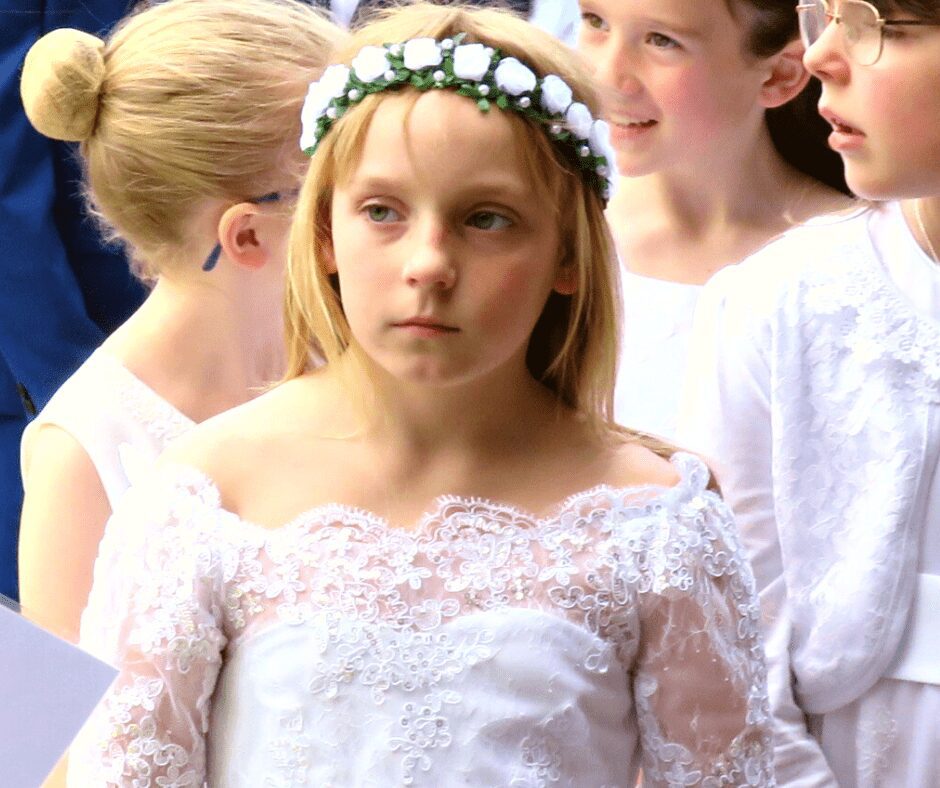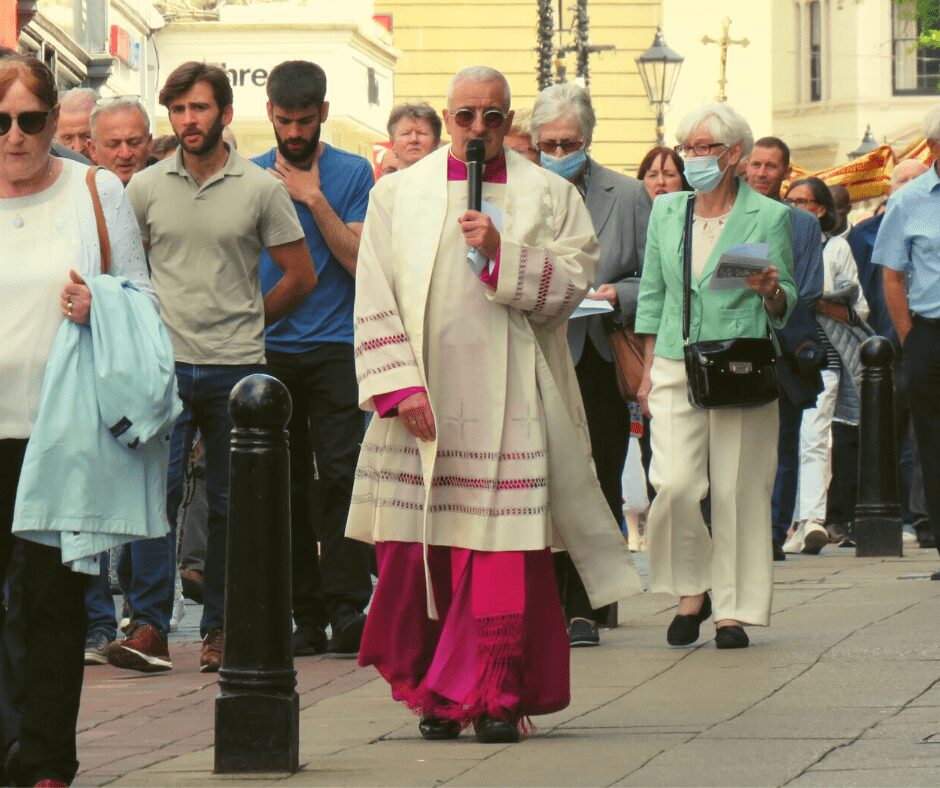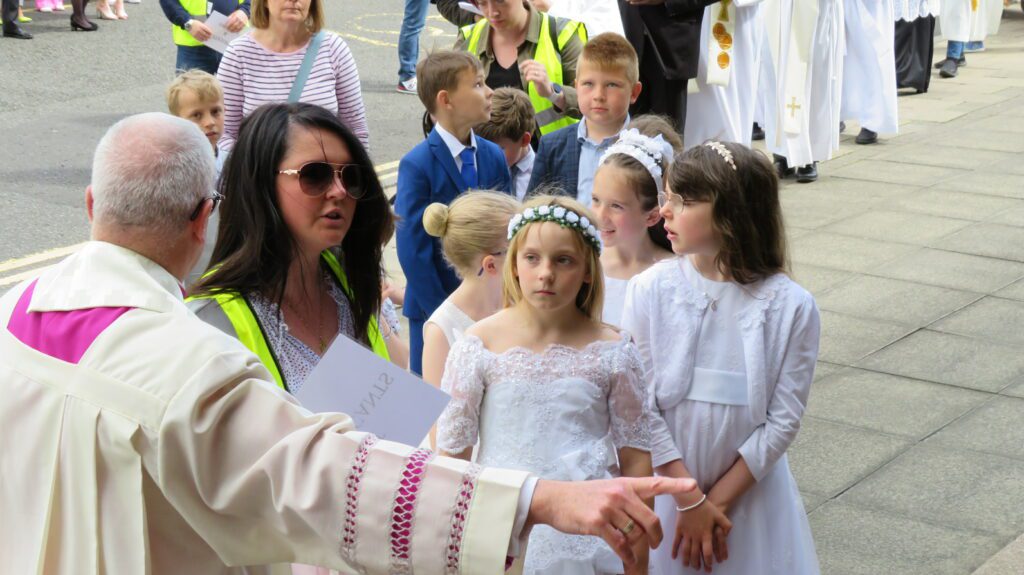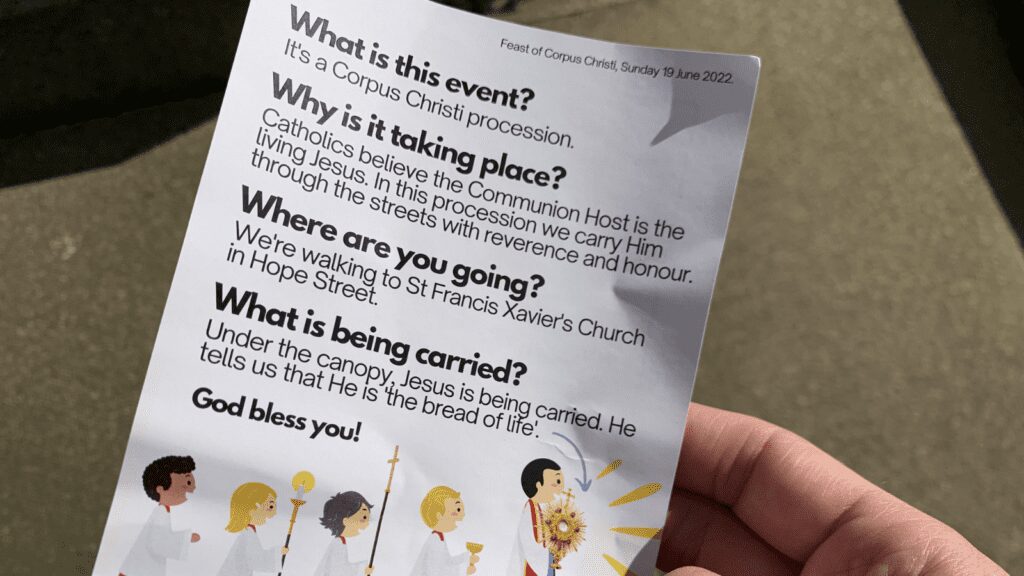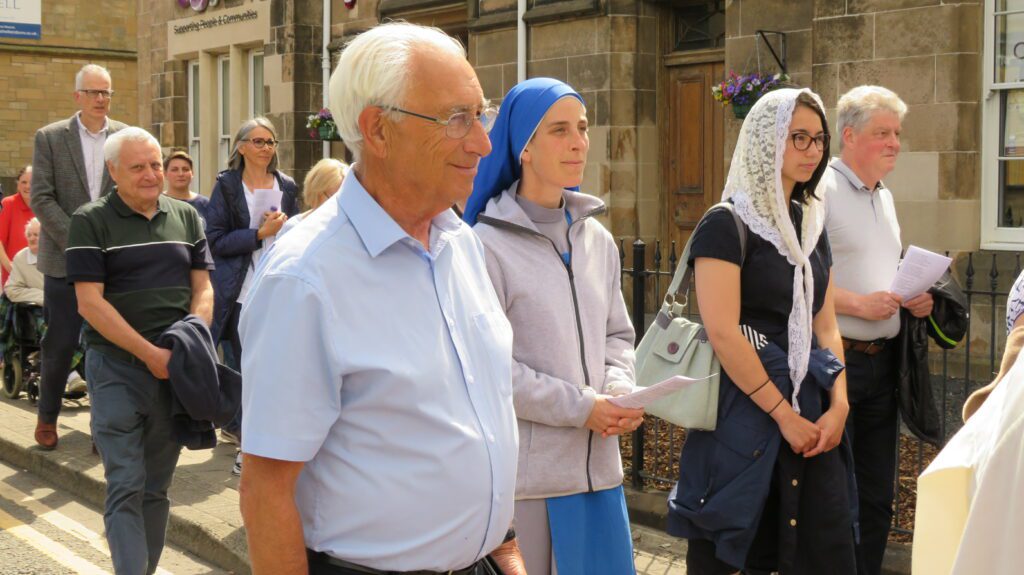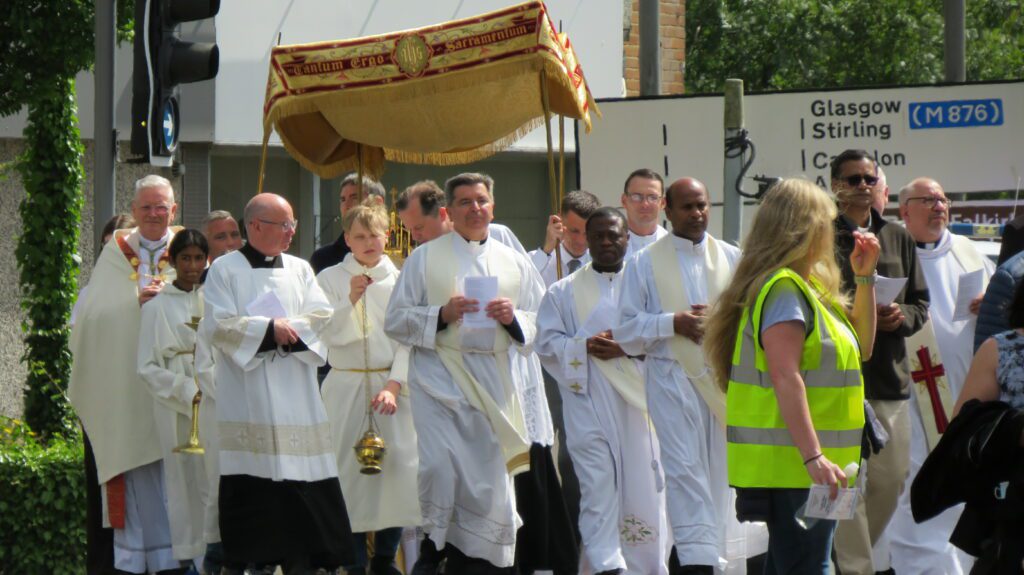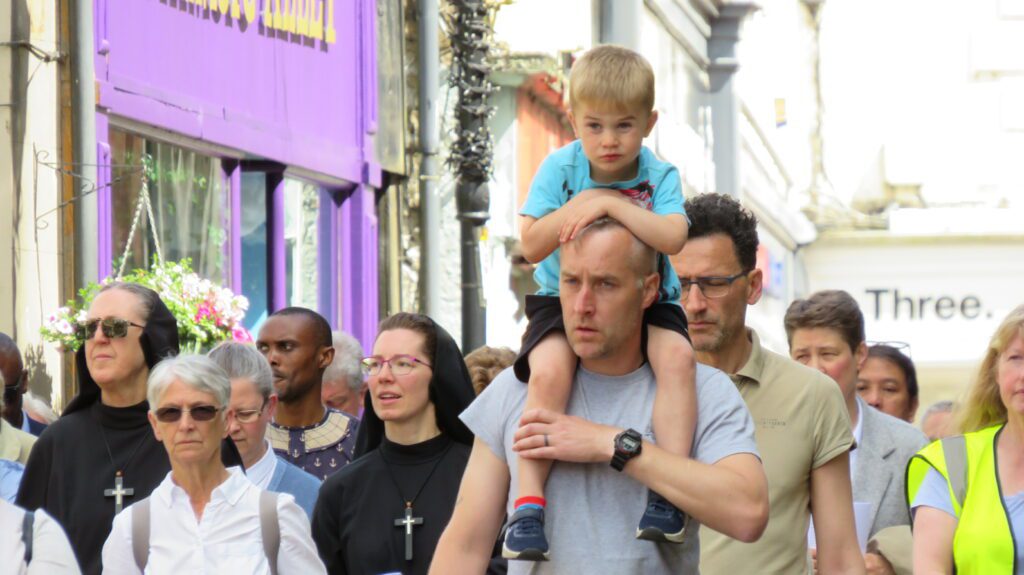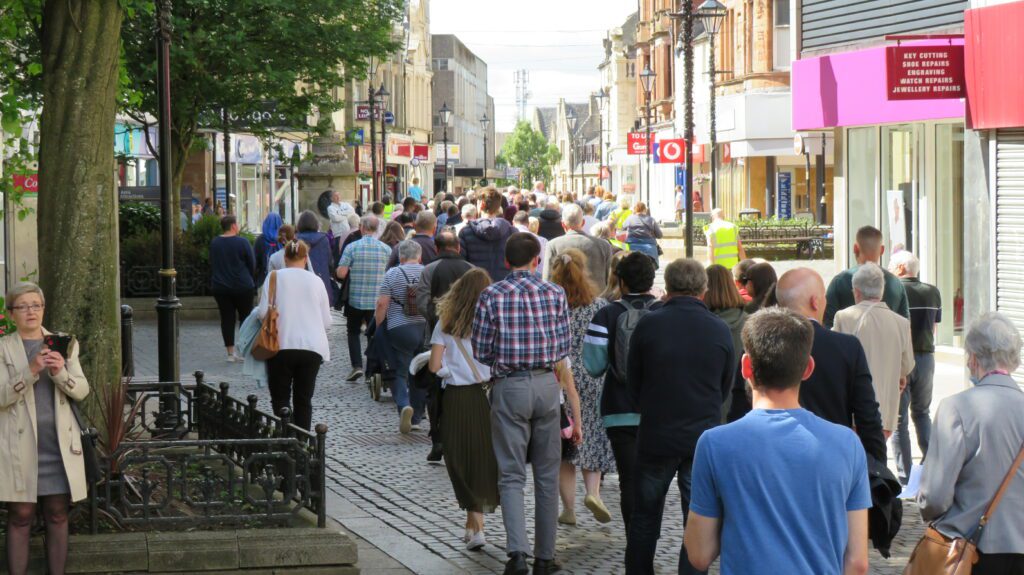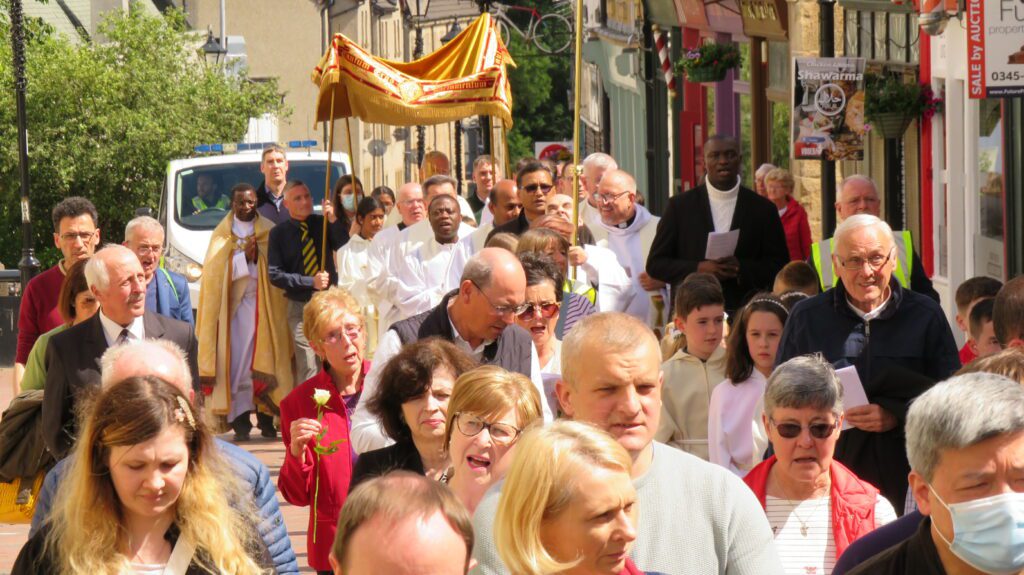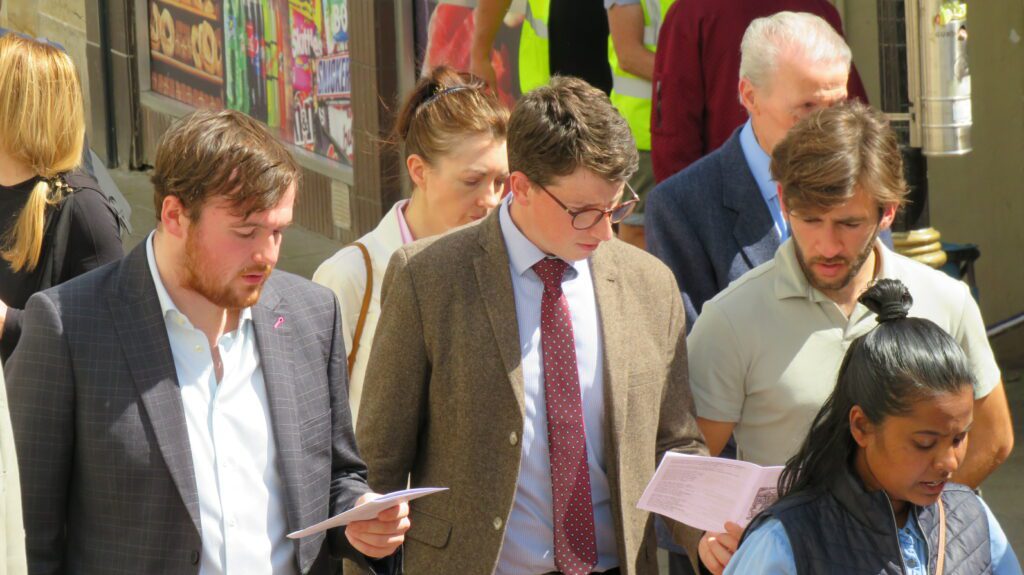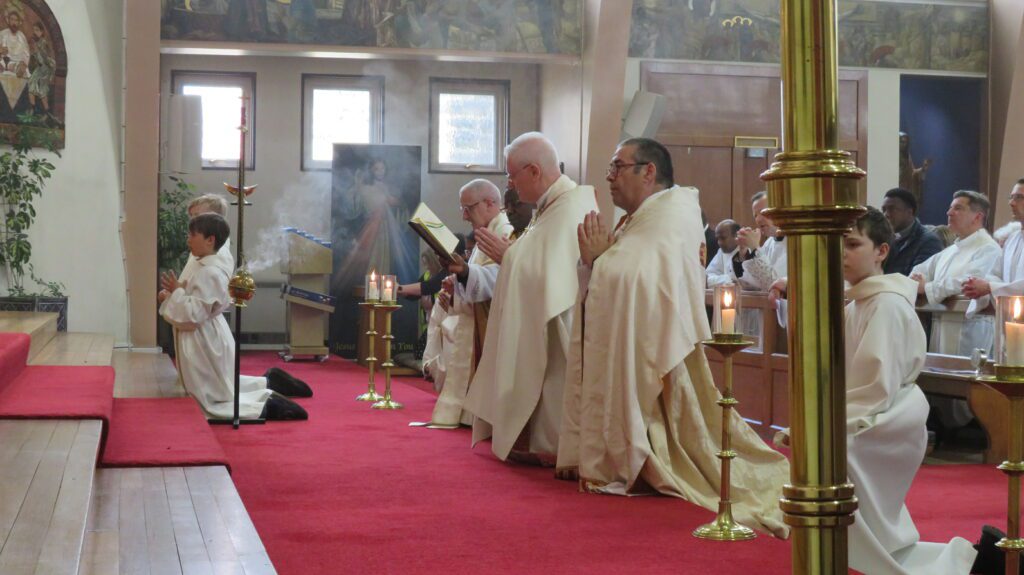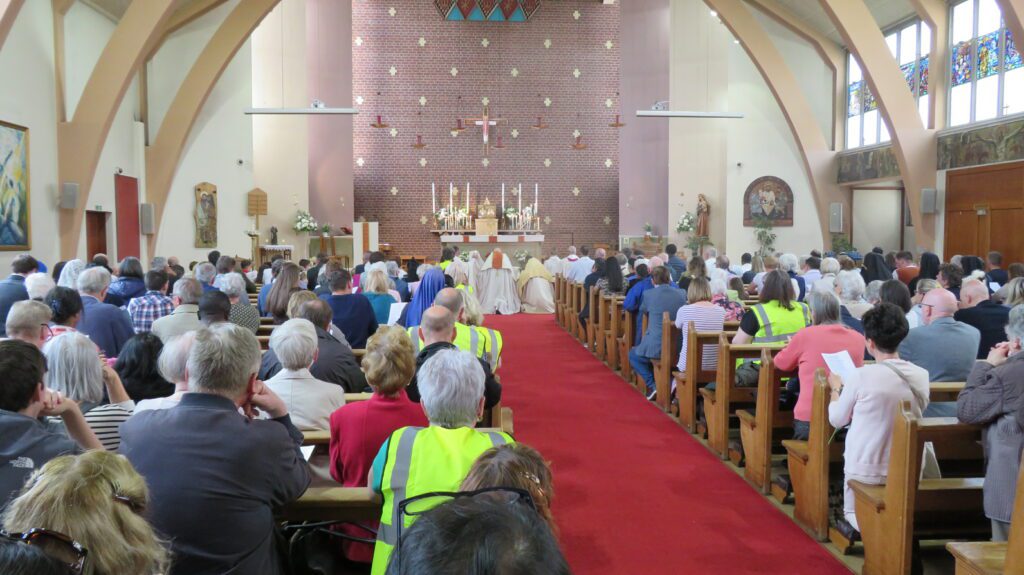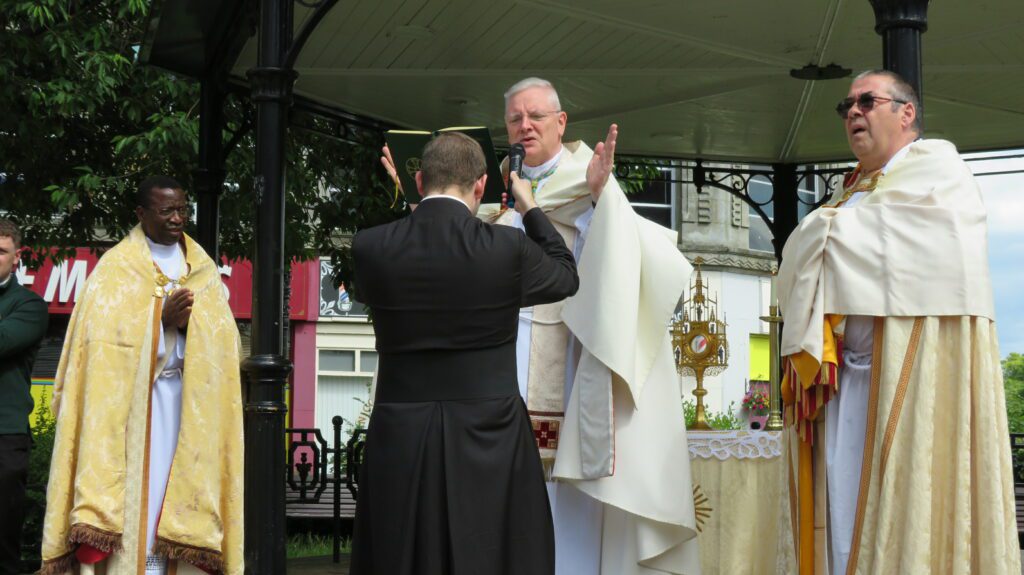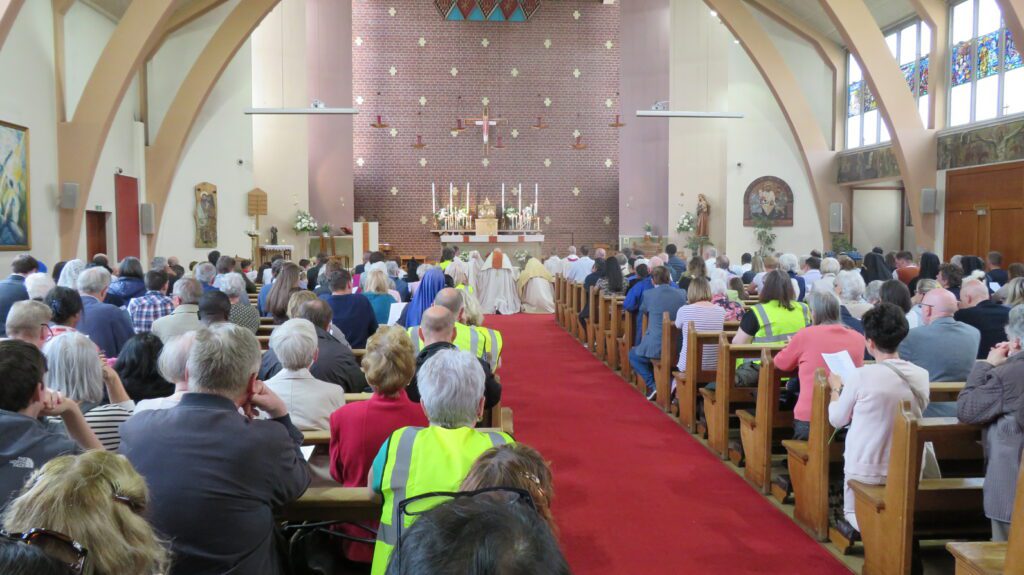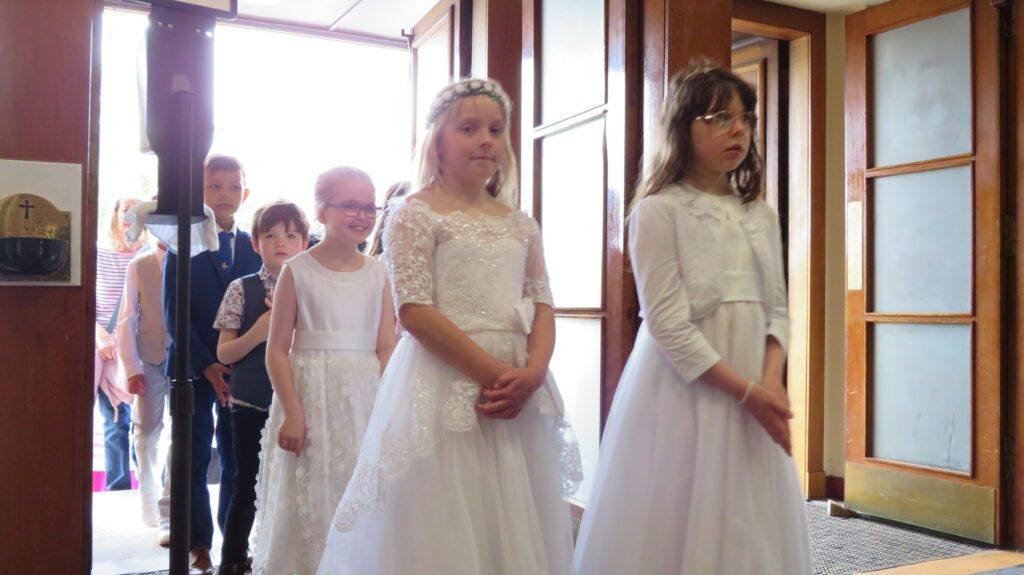Here is the Synod Report for the Archdiocese of St Andrews & Edinburgh, which will be submitted to the Bishops' Conference of Scotland. It can also be read here.
Synod Report - Archdiocese of St Andrews & Edinburgh
The Holy Father’s desire to embark upon a synodal process was announced at a time when the Archdiocese of St Andrews & Edinburgh was involved in a process of renewal and deeper reflection on the sources of our identity as a Church.
The Holy Father’s initiative has enriched this already ongoing and necessary process and has given it a decisive focus around the themes of communion, participation, and mission. For this I am immensely grateful, and I am confident that the work done in preparation for the 2023 Synod will, in due course, bear fruit in this Archdiocese.
I take this opportunity to thank the clergy and laity who collaborated in facilitating and implementing the synodal process in our Archdiocese. In particular, I should like to single out Sr Anna Marie McGuan RSM, and Frs John Deighan, Samuel Burke OP, William McQuillan, Andrew Kingham, and Michael John Galbraith.
Moreover, I extend my thanks to Derek Buglass, Shelley McAinsh, Martin Cassels, Agatha Kai Kai, and Sarah Schuler, all of whom gave generously of their time and talents. Finally, I am indebted to the parishes of St Francis Xavier, Falkirk, St Mary’s Catholic Cathedral, Edinburgh, St Mary’s, Bathgate, St David’s, Dalkeith, and St Margaret’s, Dunfermline for hosting synodal deanery meetings. I offer my heartfelt gratitude to the people and the serving priests of those communities.
The Synodal process has brought to the fore many challenges and opportunities for this Archdiocese. Three immediate avenues of response present themselves. First, this Archdiocese has already done much to promote an authentic participation of the laity in the Church. One important way has been in the expansion of the board of trustees, which runs the Archdiocese civilly, and which now enjoys a substantial majority of professional and high qualified lay men and women.
There is however more to be done, and what has been achieved needs to be properly communicated to our people. This, I hope and pray, will foster a greater confidence between the laity and clergy and enable them both to discern how best to offer their gifts and talents in the service of the Lord and His Church.
Secondly, anxieties were expressed by some of those who participated in the synodal process about historical safeguarding issues in the Archdiocese. In recent years the Archdiocese has invested intensively in training personnel to the highest and best standards.
The most stringent and up-to-date protocols and procedures have been adopted and applied. There is much good to communicate in this regard, and our people should be made more aware of this, and of this Archdiocese’s commitment to ongoing vigilance in these matters where the highest of standards is a duty, not an option.
Finally, though many issues were raised in the synodal process, I am encouraged by the desire for prayer and a deeper spiritual life among our faithful. Indeed, given the weighty concerns expressed by the people and clergy of the Archdiocese, which do not admit of easy or instant answers, I am convinced that prayer must be the core of our response. Arising from the synodal process in this Archdiocese, there is, I believe, a real need to deepen the prayer life, the spirituality, and discernment of every individual in this Archdiocese. In these days following the feast of Corpus Christi I feel we may have made a start on this process this year by reinvigorating the Forty Hours’ devotion in the Archdiocese, but much remains to be done.
To this end, I will institute a monthly Holy Hour at the Gillis Centre to which I invite all the faithful to come and pray with me before Our Lord present in the Blessed Sacrament. As it says in the very motto of the City of Edinburgh, Unless the Lord builds the house, those who build it labor in vain (Ps 127:1). Together let us ask the Lord to bless our endeavours and raise up committed disciples in this Archdiocese.
Let us pray for insight, courage, and joy in our mission as His followers. Let us be confident that He is with us and He will hear us.
+Leo Cushley
Archbishop of St Andrews & Edinburgh
Introduction
In accordance with the Holy Father’s wishes, it has been our privilege in the Archdiocese of St Andrews & Edinburgh to embark upon a synodal journey in preparation for the Synod on Synodality to be held in October 2023 at the Vatican.
This initiative, following upon the Covid-19 crisis and its impact on public and communal religious practice, has provided a chance for those within the Archdiocese, clergy and laity alike, to reflect, to talk together, and to try to discern a way forward. What follows is a brief description of how the Archdiocese went about engaging in the process of synodality and a synthesis of the issues that emerged from this rich process.
Measures taken
In St Andrews & Edinburgh the diocesan phase of the synodal process was articulated through certain existing structures, but it also required the creation of new initiatives in order to ensure as wide a participation as possible in the time which we had available.
- Materials were created that could be adapted for parish meetings and used as resources for other groups. Given the understandable hesitancy among many of the faithful about meeting in person, this necessarily required that these materials be appropriate for both in-person and online meetings.
- Conscious of the importance of prayer and openness to the Holy Spirit in this process, and responding to an expressed desire among the clergy and laity for shared times of prayer, various prayer services were held. To summarise, Holy Hours and synodal meetings were held in each deanery. Parish meetings were also held throughout the Archdiocese.
- Some parishes chose to feedback the results of their meetings at the deanery meetings, while other parishes made individual submissions.
- School lesson plans were distributed to the Catholic schools in the Archdiocese, both primary and secondary, so that children could contribute.
- Individual responses, online and via post, were encouraged and welcomed.
- The Archdiocese hosted a national online Colloquium on Synodality, organised by the Bishops’ Conference of Scotland, to which various internationally recognised scholars contributed.
Beginning the synodal process
The main question posed in the synod preparatory document (par. 26) is: A synodal Church, in announcing the Gospel, “journeys together:” How is this “journeying together” happening today in your particular Church? What steps does the Spirit invite us to take in order to grow in our “journeying together”?
Beyond this fundamental question, ten themes in the synod preparatory document were employed to help local churches “articulate different facets of ‘lived synodality’” (par. 30). Each of the ten themes included many points for reflection.
In preparatory discussions with representative groups, it became apparent, however, that the lack of a clear focus on Christ was a stumbling block for many of the faithful. Some wondered what the Synod was about and what its purpose was, and others distrusted the process entirely because it did not seem centred on Jesus Christ.
Consequently, as part of the preparatory phase, focused questions that both incorporated the themes of the synod preparatory document and made explicit the Christological presuppositions underlying the synodal process were drawn up and circulated as a starting point for dialogue and discussion.
Therefore, arising from the desire and faith of the lay faithful in the Archdiocese, the movement of the People of God on our synodal journey was, from the beginning, purposefully focused on Jesus Christ, not as an imposition, but as an opportunity for deeper knowledge and love of Him as a local church.
Time and time again, people expressed gratitude for the opportunity to speak about their faith and share their experiences of the Church.
Listening to other people’s perspectives and opinions challenged everyone—first, to be open; second, to listen patiently; third, to withhold judgement; fourth, to be changed.
For some participants, the synodality experienced at the parish and deanery meetings was a new way of gathering together. The language of “journeying together” was also new, but the experience of it was welcomed.
Discussing ideas, sharing opinions, and praying to discern the movement of the Holy Spirit were all encouraged and enabled at the meetings.
As a Church, the movement towards synodality (listening to the Holy Spirit and to one another in order to journey together) has been a welcome one
While many people have already had the experience of synodal fellowship with other Catholics—although they may not have called it that before—it was generally agreed that this should be encouraged. Several themes came forward through the discussions that need more reflection and discussion.
Other themes demonstrate that the Church’s teaching is not well understood or is deemed unacceptable to people’s current sensibilities. There are also possible steps to be taken as we continue this journey together. In some instances, these overlap.
Issues emerging
Sincere engagement in the synodal process involved touching upon controversial issues and, of course, tensions and differences emerged. Specific issues will be dealt with below as they arise. Nonetheless, two very clear trends emerged that characterised almost all these tensions.
First, those who expressed disagreement or reservations about some of the Church’s teachings very often were not engaging with the Church’s actual teaching. They were, instead, engaging with negative stereotypes or even caricatures of the Church’s teaching.
This made finding a starting point for dialogue difficult. It further shows the shortcomings of the Church’s present methods of evangelisation and catechesis. Secular narratives play a disproportionate role in forming the mindset and understanding of the faithful.
Secondly, a generation gap emerged. This is perhaps most succinctly articulated by Dr Sara Parvis of the University of Edinburgh speaking at the Archdiocesan-hosted national conference, Synodality in the Life & Mission of the Church: “The young and the Vatican II generation…see things very differently…the necessary task of telling their stories to each other is going to be painful…The sheer difference of what the young think the Church is, the generation for who to be Christian at all is to be effectively an everyday martyr…what the world looks like to young students is so different from what it looked like to my parent’s generation where Christianity was normal…”
As predicted, this second tension emerged again and again in discussions. Dr Parvis herself expressed the hope that the synodal process might be a moment of healing and rapprochement. In doing so she articulated the implicit desire of so many involved in the synodal process.
Liturgy
There is a desire for the liturgy to be better understood in order to foster participation and a fruitful reception of the Sacraments.
While many individuals expressed their own particular liturgical preferences, nonetheless, it emerged that there was a real willingness to be open to how others might find it useful to pray.
The consensus seemed to be that there should be a place for a variety of forms of worship, both traditional and contemporary, and in particular that both the Traditional Latin Mass (extraordinary form) and the Novus Ordo should be reverently celebrated and warmly embraced.
Communication
Several topics regarding communication came up: first, we can learn to listen better to one another, and especially to young people. The synodal meetings have already shown that.
Second, there is a need to communicate within our parishes and throughout the Archdiocese to know what is happening in our communities and more broadly.
Third, parishes may need assistance with their communication platforms, such that websites, social media presence, and information flow can be improved.
Another theme was that if there is to be genuine consultation of the laity and a flourishing of co-responsibility, these synod responses should be the start of a regular dialogue between the whole People of God in the Archdiocese.
Dialogue, in this sense, can be a path towards a greater grasp of the truth and a more intense participation in the life of Christ. It is desirable that such conversations become the norm and that issues and concerns of both the clergy and the laity be discussed in an open and respectful manner.
Young People
A strong, recurring theme was a concern about the number of young people leaving the Church. Like people of all ages, the primary human need of young adults is for meaningful and life-giving relationships.
Beyond this first and irreplaceable exigency, a life lived generously with a clear purpose (and not necessarily without sacrifice) is universally desired, especially by young people. The Church has not always communicated well about the importance of good friendships, nor how to meet the need for a life filled with meaning and intentional, generous love.
The Catholic schools and chaplaincies could be an opportunity to begin these conversations and to reach younger people and families.
Strengthening the connection between the parish and the school could also be a way to hear what the needs of young people are, especially having priests visit the schools and speak with the children and young people, to listen to their questions and understand their persepectives.
Inclusivity
Education and discussion about Christian anthropology, especially human sexuality and family life, is a great need. Many synodal submissions included the word “inclusive” or “inclusivity”, but the implication of these terms was not elaborated upon. Moreover, the use of these words seems to be derived from an entirely secular origin.
It does seem that underlying the expressed desire for greater inclusivity there is a lack of awareness of the pastoral application of the Church’s teaching, that is, why the Church teaches what She does, and how that is completely ordered towards personal flourishing and integral happiness.
There were also many submissions that expressed gratitude for the clarity of the Church’s teaching, especially about sexual ethics, and whose concerns focused more on how to live the Church’s call to family life in a socio-economic situation that marginalises stay-at-home mothers or fathers. The challenges all families face are real and should not be overlooked or underestimated.
Cooperation between clergy and laity
The People of God desire to contribute to the Church and to collaborate in Her mission with an awareness of their spiritual gifts. The Holy Spirit can make us more fruitful if we know how we are best able to cooperate with Him and with others.
This in turn makes more effective the entire work of the Church. Co-responsibility requires self-knowledge on the part of everyone, openness on the part of the parish priest, and generosity and initiative on the part of the laity.
One parish expressed this succinctly: “People need to know how and why to contribute…”
Women in the Church
The topic of the role of women in the Church was raised many times. There was little to no awareness, however, of the leadership roles currently held by women at the Archdiocesan level or parochial level.
In general, there appears to be little awareness of these, perhaps because they are less visible than the role of the archbishop or the parish priest. But, as many commented, need this necessarily be the case?
Moreover, there may be ways to encourage the contribution of women even more in decision making at every level, especially in places where this has not yet happened, and also to give women a voice in the magisterial dimension of the Church, when and where that is possible.
Regrettably, while touching upon something significant, the questions about the place of women in the Church were usually posed in a reductive manner based upon presuppositions drawn from secular discourse. The significant question of 'do women have value?' was masked by the question of 'what can women do?'
The first is an existential question, not a ministerial one, and much deeper. The answer, of course, is yes, but value and dignity are not outgrowths of function.
Attempts to make the equal dignity of women dependent on women doing the same things as men reduces dignity to activity. This mindset diminishes the true dignity of both men and women. Activity and function tell us something about a person, but dignity touches something much more essential and is prior to both. This is not clearly understood in the Church or in society.
Vocations to the priesthood
The dwindling number of priests is a cause of grave concern for the faithful. However, little attention was given to the underlying spiritual causes of this crisis.
Instead, common suggestions to bolster the number of priests were that the Church should ordain women or allowed married priests.
However, such responses do not address the underlying spiritual reality that the crisis in priestly vocations is a crisis of faith. If we, as a Church, no longer seek God, then God will no longer send us priests. If young people are not invited to seek God more in their daily lives, and if they do not see this modelled, then a vocation to the priesthood or religious life will likely never occur to them.
It should be stated frankly that the question of women’s ordination has been answered definitively by the Church. It is not possible for women to be ordained. Continued discussion of this topic therefore cannot be part of a synodal journey that is genuinely ecclesial in nature and focused on Christ as both its starting point and its goal.
Faith formation
The spiritual lives of Catholics need support and development. This should include opportunities to learn how to pray, to make retreats, and to understand better the Church’s rich spiritual heritage.
People are seeking meditation and recollection – both inside and outside the Church – but they do not necessarily equate it with Catholicism. The spiritual wisdom of our tradition can be opened and shared with among the Church’s children and with all.
Care for the earth
Concerns about the environment were expressed, and care for the earth is part of our responsibility as stewards of creation.
While the Church cannot fix the environment, Her members are fully capable of engaging in a robust discussion about how our parishes, properties, and civic communities can be more ecologically responsible.
Contemporary society and the Church
Many expressed the opinion that the Church is out of date and must update to the pace, style, and tastes of modern life.
While certain things can most certainly be adapted, a discernment is required about how the spiritual needs of modern people can be met most effectively by the Church.
What the world has to offer is never satisfactory at the deepest spiritual level, and so to “update” in order to offer less of Jesus Christ to the world would be a betrayal of the Church’s identity and mission.
As Saint Ignatius of Antioch wrote in the second century, and which is still pertinent today: “For the work we have to do is no affair of persuasive speaking; Christianity lies in achieving greatness in the face of a world’s hatred.”
Steps to take
Mass and confession availability
An urgent desire that was expressed numerous times was that Holy Mass and the Sacrament of Penance be more widely available.
It was noted numerous times that in order to enable the priests to be more available, people must engage in their parishes and assist with parish councils, finance councils, and as volunteers for various groups (fabric committee, altar and sanctuary care, cleaning, hospitality, etc.). If, indeed, people are willing to collaborate in this way, it is hoped that this would allow the priests to be more available for the celebration of the Sacraments.
Vocations to the priesthood
The example of faith-filled and dedicated men is the greatest incentive for young men to consider the priesthood. The deep joy that comes with a life of such sacrifice is also attractive. Supporting our priests to share their lives and their faith, along with their hardships and triumphs, could open up to young men the possibility of a priestly vocation.
Catholic devotions
Many people desire that Catholic devotions be promoted in parishes and in families. Obviously, in family homes, any prayers or devotions may be practiced, but perhaps a reintroduction to some of the more common ones would be helpful for families.
Prayer groups and faith formation
There is a strong desire for prayer together, especially for the parishes and their needs, as well as for the needs of their members (illnesses, bereavements, celebrations, etc.). The formation and nourishment of groups intentionally praying for others, both at the archdiocesan level and at the parish level, should be implemented.
Additionally, small groups that meet together over time should be encouraged. These can be focused on the study of Sacred Scripture or other faith formation; they could be a fruit of Alpha courses or Cursillo; or as a new faith-sharing initiative. The laity can initiate such groups on their own; small groups need not be tied to a parish location or function, although some form of dialogue with a spiritual mentor should be encouraged. Further, faith formation in general is greatly desired at all levels.
It is clear from comments made in the synodal process that this faith formation, though it must have an intellectual content, also requires something more: an affective element. One will not embrace the truth – and certainly not a challenging and potentially life-changing truth – unless one first loves the truth.
The recent Archdiocesan initiative of the Diploma in Catechetics has been enthusiastically taken up by dozens of people; it is hoped that more will take advantage of this resource.
The Archdiocese has also provided catechetical content on various topics through its YouTube channel and Facebook account—this was noted and appreciated. The recent implementation of the Catechesis of the Good Shepherd, focused on catechesis for 3-6 year-olds, is also a new catechetical endeavour and a sign of hope in the Archdiocese.
One difficulty in terms of faith formation is that what is being offered is not always communicated to or among the parishes, such that many do not know or have not heard about what is available.
Hospitality and outreach
Parish communities should be welcoming—this is universally desired.
This includes the preparation of the worship space and common spaces, that they be clean, ordered, properly furnished, and well-lit.
Parish members should be friendly, and also aware of and sensitive to those have been hurt by the Church or may feel excluded because of their life situation.
While all should be welcome to worship in the Church, the guidelines for the reception of Holy Communion should be clear, lest anyone “eat or drink judgement upon himself” (1 Cor 11:27-29), recalling that clarity need not be rude or punitive in any way.
As many of the participants in the synodal process commented, calling people to live by the standards of Christ might be a challenge but it is often an invitation to live more authentically.
Many good and practical suggestions were made to help people come back to Mass after the pandemic. For example, using parish registers to reach out to non-returners or having welcome packs for new or returning people in the parish
To create a welcoming environment, again, people are willing and ready to help. However, rather than waiting on people to come to us, parishes can be creative in generating opportunities and events that demonstrate our genuine care for others and a desire to be supportive and caring.
At a very practical level, we need good facilities, wherever possible, for those with challenges to mobility (the handicapped, the elderly, those with small children, etc.).
Communication within and outside the parish
Regarding online services, prayer groups, and meetings: we can and should continue what is helpful for people.
Parishioners with particular skills in website design and management as well as social media can be key to extending hospitality and community in a virtual dimension.
Cooperation between clergy and laity
Parish councils are seen as an obvious way for laity and clergy to collaborate, and for members of the parish to be heard.
Such cooperation can aid communication, support priests, and ensure financial transparency.
Having parish teams with lay leaders (paid when possible) would enable delegation of tasks and foster co-responsibility (for example, delegating youth ministry to a paid youth worker), while also being of great benefit to the entire parish.
Parishes have different needs, so an ongoing and open dialogue between the parish priest and the laity, a dialogue that is rooted in prayer together, is necessary to identify needs, obstacles and solutions.
Abuse and the Church's response
It is a source of deep shame for Christians that some have used the sacred ministry as an opportunity to attack the vulnerable and the weak.
In recent times successive popes have recognised this problem. Pope Benedict memorably referred to the ‘filth’ that was inside the Church and the priesthood.
Through new processes, the Holy See has sought to make sure that all dioceses around the world will treat safeguarding concerns properly.
The popes have also been consistent in their call to the bishops to root out this wickedness wherever it is to be found, and the Archdiocese of St Andrews & Edinburgh takes this responsibility seriously.
It has cooperated fully with a recent independent safeguarding audit which reported positively.
The Archdiocese also has a policy of mandatory reporting. This means that any criminal accusation that it receives against any of its members, both lay and clerical, is taken directly to the police.
Additionally, the creation of the independent Scottish Catholic Safeguarding Standards Agency earlier this year, to be chaired by a senior member of the justiciary, will give Catholics and people of all faith the reassurance that no effort is being spared to ensure the safety of the most vulnerable in God’s family.
Conclusion
Journeying together means moving toward a common goal.
The goal of all our striving is nothing else than “the prize of the upward call of God in Christ Jesus” (Phil 3:14). This will necessarily mean conversion for all of us. Being on the way to Jesus Christ requires recognising areas where change is necessary and then acting upon that insight.
This first part of our synodal journey has made us aware of things in our local church that need to be explored together.
As our next step, we should pray and then act upon what comes from that prayer, both at the parish and archdiocesan level.
Not all parishes have the same needs or concerns, so there is not one answer that can be given to how the Church should journey together.
Additionally, the action needed cannot be only the work of the clergy or the laity. Both are essential and co-responsible for the mission of the Church.
As needs arise and areas for potential change manifest themselves, clergy and laity must pray and collaborate in order to respond with integrity to the challenges our Church faces.
